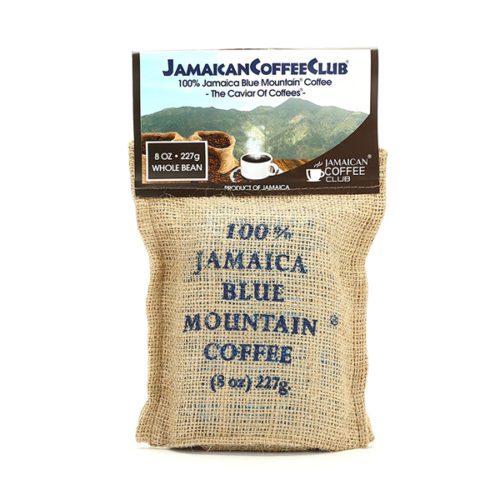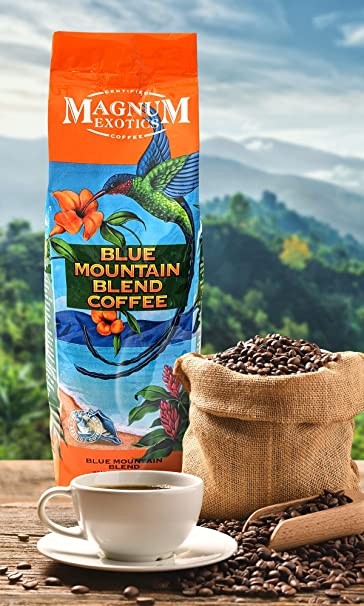

It’s important to keep this perspective when shopping. Then, every single bean is hand-inspected through a painstaking system to weed out defects and ensure that only the best coffee (most uniform beans) makes it to market. Roughly 80% of the crop is exported to Japan, leaving only 20% for the rest of the world.īlue Mountain coffee trees grow in small groups on steep hillsides, making them difficult for workers to harvest. On top of that, they are time-consuming to grow, taking about twice as long as typical coffee ( 3). These beans come from a small island and need to come from one of just a few different locations on the island to be certified. Supply is limited primarily by geographic area. Why Is Blue Mountain Coffee So Expensive?īlue Mountain coffee is expensive for two main reasons: limited supply and the actions required to keep the quality high. It is notably less acidic than the best coffee from Ethiopia, where it originated. This exotic coffee is crowd-pleasing, the sort of coffee you could sip all day – if you could afford it. Jamaica Blue Mountain coffee is best known for its smooth flavors with minimal bitterness, subtle acidity, and robust aroma. What are the characteristics of Jamaica Blue Mountain coffee? The aroma is typically sweet herbs and florals with overtones of nuts, and it’s noted for its intensity. The best beans have a smooth but vibrant acidity and a sweetness that borders on creamy. You can expect a mild but polished flavor, often featuring notes of chocolate and ripe fruit, with very little bitterness. Along with Hawaii’s Kona beans, it is not uncommon to hear that Blue Mountain beans are on a coffee lover’s bucket list. The smooth, clean taste of Blue Mountain coffee has given it a worldwide reputation for excellence. What Do Blue Mountain Coffee Beans Taste Like? These conditions, combined with the dedication of local farmers to hand-picking and sorting their coffee beans, make Jamaican Blue Moutain coffee the best. The Blue Mountain range has an ideal climate for growing Arabica coffee beans, with high elevations, ample sunshine, and plenty of humidity ( 2). Why is Jamaican Blue Mountain coffee the best? That’s why beans from the Blue Mountains are frequently called the best coffee in the world. Jamaica’s Blue Mountain coffee is special thanks to the unique combination of climate, geography, and Arabica coffee variety found nowhere else on Earth. What Is So Special About Jamaica’s Blue Mountain Coffee? Every coffee was then blind-tasted and rated by at least three coffee drinkers. For espresso, we felt it only fair to dial in each coffee to showcase it at its best. For the pour over and French press brews, we used a standardized recipe for every coffee. The exception is the K-Cups, which were brewed using a Keurig K-Elite. If there is an affordable JBM blend that tastes as good as the pure stuff, that’s a hot tip we definitely want to pass along to our readers.Įach coffee was prepared using three brewing methods: pour over, French press, and espresso. We prioritized single-origin coffee but included a few blends, too. We purchased, brewed, and tasted over 15 Jamaican Blue Mountain coffees to bring you this list of the top six – an expensive and, for the most part, delicious endeavor. This is a great way to experience the world-renowned JBM flavor profiles without breaking the bank. The big winning factor here? They’re nearly half the price of 100% pure Jamaica coffee. We tasted a vibrant fruit acidity with a rich chocolate depth and intense aroma. The result is a wonderfully balanced brew that still has a ton of character.

This specialty blend is crafted with 30% pure Jamaican Blue Mountain beans, with the remaining 70% made up of a supporting cast of the most elite mountain-grown coffees.

And, to be perfectly honest, our tasters loved it! It’s approved by the Jamaica Agricultural Commodities Regulatory Authority. But this coffee from Volcanica is the rare exception. We typically advise against buying a blend of Jamaican Blue Mountain coffee beans, as they are unregulated, overpriced, and can contain less than 10% real Blue Mountain coffee.


 0 kommentar(er)
0 kommentar(er)
